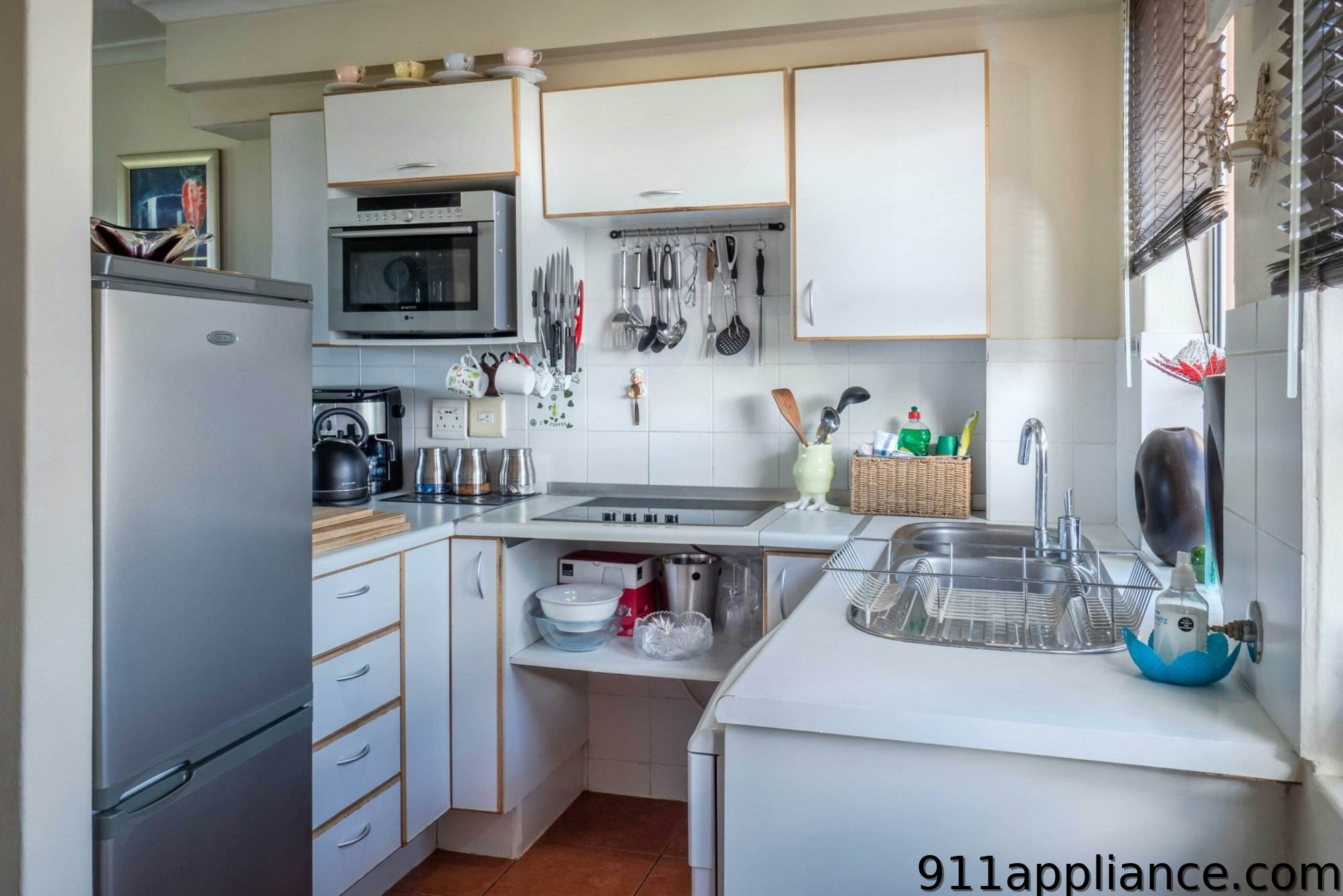Energy efficiency is becoming increasingly important as we strive to reduce our carbon footprint and conserve resources. Efficient appliance use not only helps to save energy and reduce greenhouse gas emissions, but it also saves money on utility bills. By making simple changes and adopting energy-saving habits, we can make a significant impact on the environment and our wallets.
Using appliances efficiently has several benefits. Firstly, it reduces energy consumption, which in turn reduces the demand for fossil fuels and decreases greenhouse gas emissions. This helps to combat climate change and protect the environment. Secondly, efficient appliance use can lead to significant cost savings on utility bills. By using appliances in a more energy-efficient manner, we can reduce our energy consumption and lower our monthly expenses. Lastly, efficient appliance use can also extend the lifespan of appliances, reducing the need for frequent replacements and reducing waste.
Table of Contents
- Key Takeaways
- Tips for Reducing Energy Consumption
- Efficient Use of Refrigerators and Freezers
- Efficient Use of Washing Machines and Dryers
- Efficient Use of Dishwashers
- Efficient Use of Ovens and Stovetops
- Efficient Use of Air Conditioners and Heaters
- Maintenance Tips for Efficient Appliance Use
- Conclusion and Additional Resources for Efficient Appliance Use
- How Can Regular Maintenance of Appliances Lead to More Efficient Use?
- FAQs
- What are some tips for using appliances efficiently?
- How can I save energy when using appliances?
- What are some common mistakes people make when using appliances?
- How often should I clean my appliances?
- What should I do if my appliance is not working properly?
Key Takeaways
- Efficient appliance use can save you money on your energy bills and reduce your carbon footprint.
- Understanding your appliance energy consumption can help you make informed decisions about which appliances to use and when.
- Tips for reducing energy consumption include unplugging appliances when not in use, using power strips, and adjusting thermostat settings.
- Efficient use of refrigerators and freezers includes keeping them full, defrosting regularly, and setting the temperature correctly.
- Efficient use of washing machines and dryers includes using cold water, only running full loads, and cleaning the lint filter regularly.
Understanding Your Appliance Energy Consumption
To make informed decisions about efficient appliance use, it is important to understand energy labels and ratings. Energy labels provide information about the energy efficiency of an appliance and can help consumers compare different models. These labels typically include information such as the annual energy consumption, energy efficiency rating, and estimated annual operating cost.
Energy ratings are another useful tool for understanding appliance energy consumption. Appliances are given a rating from A+++ (most efficient) to D (least efficient). The higher the rating, the more energy-efficient the appliance is. When purchasing new appliances, it is advisable to choose models with higher energy ratings to ensure maximum efficiency.
Calculating energy consumption can also be helpful in understanding how much energy an appliance uses. To calculate energy consumption, you need to know the power rating of the appliance (in watts) and the number of hours it is used per day. Multiply the power rating by the number of hours used per day to get the daily energy consumption in watt-hours (Wh). To convert this to kilowatt-hours (kWh), divide by 1000. This calculation can help you estimate the energy consumption of your appliances and identify areas where you can make improvements.
Tips for Reducing Energy Consumption
There are several simple changes you can make to reduce energy consumption and increase efficiency in your home. One of the easiest ways to save energy is by turning off lights and appliances when they are not in use. This includes unplugging electronics that are not being used, as they can still draw power even when turned off. Using power strips with an on/off switch can make it easier to turn off multiple devices at once.
Another way to reduce energy consumption is by using natural light whenever possible. Open curtains and blinds during the day to let in natural light, and only use artificial lighting when necessary. Additionally, using energy-efficient light bulbs, such as LED bulbs, can significantly reduce energy usage.
Adjusting the thermostat can also lead to energy savings. In the winter, lower the thermostat by a few degrees and wear warmer clothing to stay comfortable. In the summer, raise the thermostat and use fans to circulate air instead of relying solely on air conditioning. Programmable thermostats can be especially helpful in automatically adjusting temperatures based on your schedule.
Efficient Use of Refrigerators and Freezers
Refrigerators and freezers are among the most energy-consuming appliances in a household. To use them efficiently, it is important to set the temperature correctly. The ideal temperature for a refrigerator is between 35-38 degrees Fahrenheit (2-3 degrees Celsius), while the freezer should be set at 0 degrees Fahrenheit (-18 degrees Celsius). Keeping the temperature lower than necessary can lead to unnecessary energy consumption.
Proper maintenance and cleaning are also essential for efficient refrigerator and freezer use. Regularly clean the coils at the back or underneath the appliance to remove dust and debris, as this can improve efficiency. Additionally, ensure that the door seals are tight and free from any gaps or cracks. A loose seal can allow cold air to escape, leading to increased energy consumption.
Efficient Use of Washing Machines and Dryers
Washing machines and dryers are another set of appliances that consume a significant amount of energy. To use them efficiently, take advantage of energy-saving settings and features. Many modern washing machines have settings such as “eco” or “quick wash” that use less water and energy. Using these settings can help reduce energy consumption while still effectively cleaning your clothes.
When it comes to drying clothes, air-drying is the most energy-efficient option. Hang clothes outside on a clothesline or use a drying rack indoors. If you do use a dryer, make sure to clean the lint filter after each use, as a clogged filter can reduce airflow and increase drying time.
To further reduce water usage, consider washing full loads of laundry whenever possible. This maximizes the efficiency of each cycle and reduces the number of loads needed overall. Additionally, using cold water for washing can save energy by eliminating the need to heat water.
Efficient Use of Dishwashers
Dishwashers can be energy-intensive appliances, but there are ways to use them efficiently. Similar to washing machines, dishwashers often have energy-saving settings that use less water and energy. Look for settings such as “eco” or “energy-saving” when using your dishwasher.
To further reduce water usage, scrape off excess food from dishes before loading them into the dishwasher instead of rinsing them under running water. Additionally, wait until you have a full load before running the dishwasher to maximize its efficiency.
Efficient Use of Ovens and Stovetops
Ovens and stovetops are commonly used appliances in the kitchen, and there are ways to use them more efficiently. When using the oven, preheating is not always necessary. Unless a recipe specifically calls for preheating, you can save energy by placing food in a cold oven and adjusting the cooking time accordingly.
Using the correct size of cookware on stovetops can also improve efficiency. Using a small pot on a large burner wastes energy as heat is lost to the surrounding air. Conversely, using a large pot on a small burner can take longer to heat up and use more energy.
Proper maintenance and cleaning are important for efficient oven and stovetop use as well. Regularly clean the oven and stovetop to remove any built-up grease or debris, as this can affect their performance. Additionally, ensure that the oven door seal is tight to prevent heat from escaping.
Efficient Use of Air Conditioners and Heaters
Air conditioners and heaters are essential for maintaining comfort in our homes, but they can also be significant energy consumers. To use them efficiently, set the thermostat at an optimal temperature. In the summer, set the thermostat to 78 degrees Fahrenheit (25 degrees Celsius) or higher when you are at home, and raise it even higher when you are away. In the winter, set the thermostat to 68 degrees Fahrenheit (20 degrees Celsius) or lower when you are at home, and lower it even further when you are away.
Regular maintenance is also important for efficient air conditioner and heater use. Clean or replace air filters regularly to ensure proper airflow and efficiency. Additionally, have your HVAC system serviced annually to keep it running smoothly and efficiently.
Maintenance Tips for Efficient Appliance Use
Regular cleaning and maintenance are essential for efficient appliance use. Dust and debris can accumulate on appliances over time, reducing their efficiency. Clean appliances regularly to remove dust and dirt from vents, coils, and filters. This can improve airflow and prevent appliances from working harder than necessary.
In addition to cleaning, there are other maintenance tasks that can help extend the lifespan of appliances. For example, regularly defrosting freezers can improve their efficiency and prevent ice buildup. Checking and tightening electrical connections can also prevent energy loss and ensure appliances are operating safely.
Conclusion and Additional Resources for Efficient Appliance Use
Efficient appliance use is crucial for reducing energy consumption, saving money, and protecting the environment. By understanding energy labels and ratings, making simple changes to reduce energy consumption, and using appliances efficiently, we can make a significant impact on our carbon footprint.
For more information on efficient appliance use and energy conservation, there are several resources available. Energy Star is a government-backed program that provides information on energy-efficient products and practices. The U.S. Department of Energy also offers resources on energy-saving tips and appliance efficiency. Additionally, local utility companies often provide resources and incentives for energy-efficient upgrades and practices.
By implementing these tips and adopting energy-saving habits, we can all contribute to a more sustainable future while enjoying the benefits of lower utility bills and longer-lasting appliances.
How Can Regular Maintenance of Appliances Lead to More Efficient Use?
Regular appliance maintenance tips can significantly improve their efficiency. Cleaning filters, checking for leaks, and inspecting electrical connections can lead to more efficient use. Proper maintenance also extends the lifespan of appliances and can save money in the long run.
FAQs
What are some tips for using appliances efficiently?
Some tips for using appliances efficiently include using the appropriate size cookware on the stove, cleaning the lint filter in the dryer after each use, and running the dishwasher only when it is full.
How can I save energy when using appliances?
To save energy when using appliances, you can use the energy-saving mode on your dishwasher and washing machine, unplug electronics when they are not in use, and use a programmable thermostat to regulate your home’s temperature.
What are some common mistakes people make when using appliances?
Some common mistakes people make when using appliances include overloading the washing machine, leaving the refrigerator door open for too long, and using the wrong type of cookware on the stove.
How often should I clean my appliances?
The frequency of cleaning your appliances depends on the type of appliance and how often it is used. However, it is recommended to clean the lint filter in the dryer after each use, clean the refrigerator coils twice a year, and clean the oven and stove regularly.
What should I do if my appliance is not working properly?
If your appliance is not working properly, you should first check the user manual for troubleshooting tips. If the issue persists, you can contact the manufacturer or a professional repair service for assistance.



